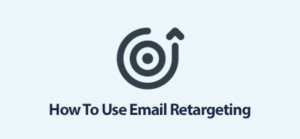It has been several years since we are performing email validations in bulk, single, and API methods. Most of the customers ask us questions about the validation speed and how much time it takes to validate for example 10K or 100K email addresses.
The answer to this question is not as simple as a number - for example 15 minutes. I am going to explain it in this blog post. First of all, we need to know what is your validation method. Are you going to use bulk email validation or validating single emails using the API? What is the turnaround time of an email validation engine to validate an email list?
What is the Difference Between Bulk Email Validation and the API?
The short answer is anti-greylisting technology. Anti-greylisting in the validation process is the technology of deliberate pauses between multiple validations. It tries to simulate the behavior of a well-configured email server to prevent the IP blocking. Technically, an API is built to send validation results as fast as it can. So, if anti-greylisting is enabled on the API, it could take 15~45 minutes for each API call - which is unacceptable. This is why anti-greylisting can be enabled only on bulk email validations. The main point of anti-greylisting is to reduce the number of "Unknown" results. So, if you validate the same list using the bulk engine and the API, you must expect a higher amount of "Unknowns" on the API results.
The API
As I said before, the API is built to deliver the validation results as fast as it can. The validation needs time and the time it takes directly depends on the email you are validating. For example, Gmail needs less than 1 second to validate. On the other hand, some servers may take 20 seconds or more. We have set a timeout for the API and it aborts the validation process after 15 seconds and marks the validation results as "Unknown". You will not pay for "Unknown" validation results.
The Bulk Validation
The main differences between API and the bulk email validation are 1) Anti-greylisting technology and 2) Validation time-out.
Anti-greylisting Technology
As mentioned earlier, anti-greylisting is built to simulate a well-configured email server and reduce the number of "Unknowns". The receiving mail server tells the sender, to please retry to send the email again in (X) minutes. A well-configured mail server will attempt to resend an email at different intervals until it's accepted or rejected by the receiving mail server. There are many types of greylisting, but the most common is time-based greylisting as mentioned above.
Each mail server has a different time they greylist the sender for, per email, normally between 1 and 30 minutes. DeBounce deploys break-through anti-grey-listing technology. When it encounters any greylisting, it will wait 30 minutes and retry to validate those specific emails. This reduces the amount of "Unknowns" received back. So you wait a little longer for your results when validating them, but your results will be a lot better. It doesn't matter how many greylisted email addresses you upload, whether it's 1 or 100,000. The processing is only delayed by 30~60 minutes in total if you use it as a service for email validation. Email validation takes more time using anti-greylisting, but it's worth it.
Validation Time-out
Some email servers have a high time-out. It could take up to 45 seconds to receive a response from them. Contrary to the API, the bulk validation engine has a timeout of 45 seconds.
Considering anti-greylisting technology and the validation timeout in mind, it is hard to anticipate the validation processing time of a certain list. 10K Gmail addresses do not need anti-greylisting and the validation takes only 1 second for each email. It means the DeBounce engines validate 10K emails in only 70 seconds. On the other hand, 10K emails with a response time of 45 seconds + anti-greylisting technology need at around 60 minutes to validate.
Conclusion
Email validation needs time. API needs to respond as fast it can. But bulk email validation needs time to process email lists. It is a bad idea to remove anti-greylisting technology and reduce the validation time-out to increase process time. Of course, the results will be ready in less time, but it contains more unknown validation results. Email validation is not a job that must be done in a hurry. Let the process finish at its own terms.





